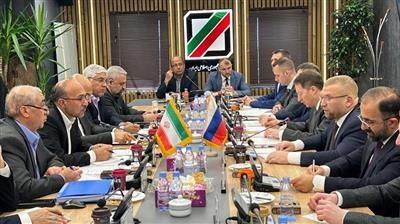During the discussions, Pikalov and Askari explored key areas to facilitate and enhance trade relations. These included strengthening interaction between customs authorities to address challenges faced by Iranian and Russian economic operators, advancing the simplified customs corridor project, mutual recognition of authorized economic operator programmes, and the exchange of customs declarations.
On the sidelines of the meeting, officials reaffirmed their commitment to expanding trade, educational exchanges, and regional cooperation in transit and customs facilitation. Both sides underscored their determination to develop these areas further.
Askari highlighted the importance of developing customs cooperation and resolving issues faced by economic actors in both countries. He emphasized streamlining trade routes between Iran and Russia and called for increased participation from the Russian Federal Customs Service in regional initiatives aimed at easing border crossings at Astara and other points.
He also advocated leveraging existing communication channels to boost trade exchanges and transit capacity. Additionally, IRICA expressed readiness to implement online data exchange for customs declarations to expedite procedures.
Pikalov described Iran as a close partner for Russia and stressed the need for joint efforts to increase bilateral trade volumes. He pointed out that reducing customs duties and barriers would be instrumental in facilitating trade growth.
Other topics discussed included training Iranian customs personnel at the Russian Customs Academy, online data sharing, enhancing transit truck movement, improving North-South corridor infrastructure, electronic sealing of transit vehicles, and combating smuggling and customs violations.
In 2024, non-oil trade between Iran and Russia exceeded 4.5 million tons valued at approximately $2.471 billion. Of this total, Iran exported around 2.58 million tons worth $1.121 billion to Russia; imports amounted to roughly 1.95 million tons valued at $1.35 billion.

